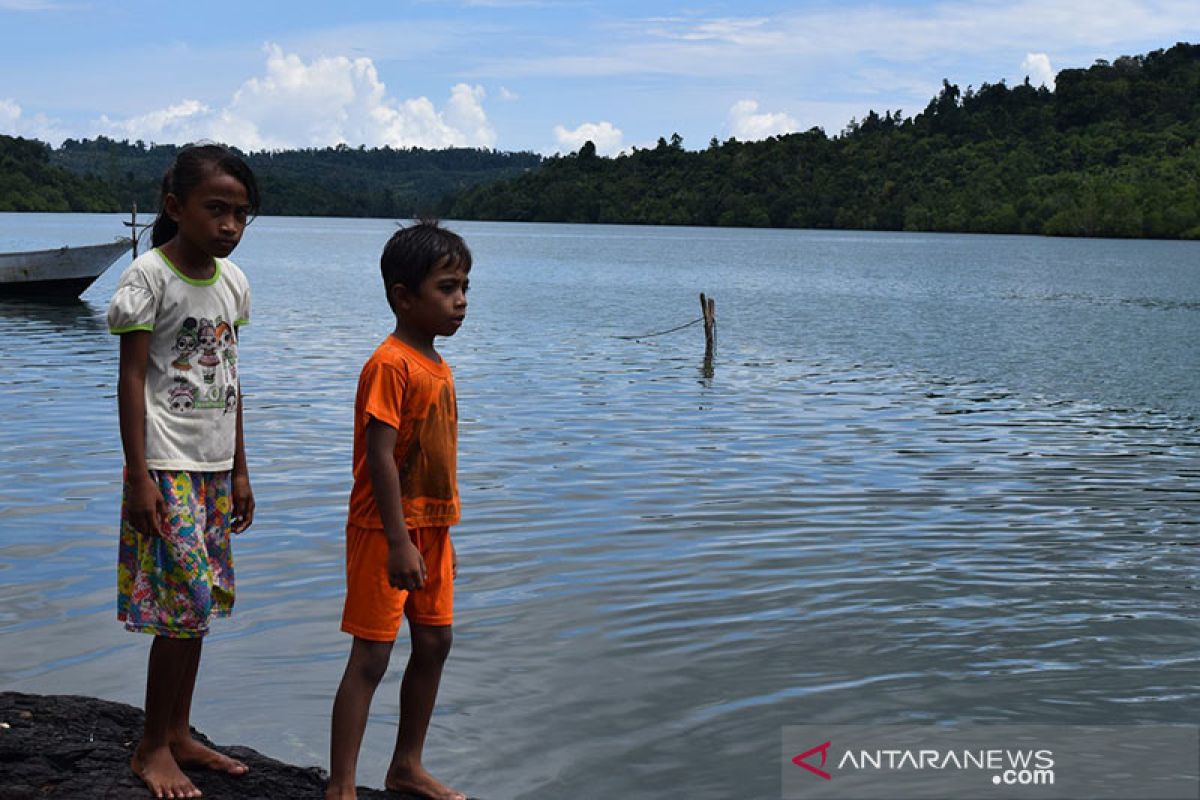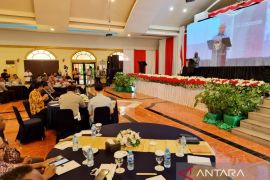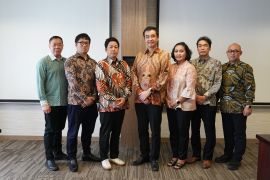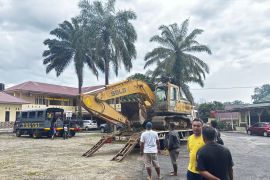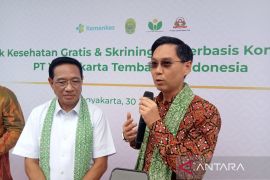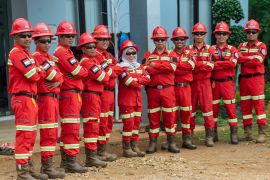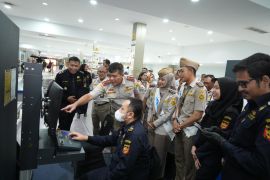The story of Gane Dalam began when President Soekarno called for the Operation to Liberate West Irian. At that time, the spirit of the Tri Komando Rakyat (Trikora) was announced from Yogyakarta on December 19,1961, so that the land of Papua could join Indonesia.
At that time, the battle against the Dutch to create what is now known as Papua was replete with challenges. The Indonesian armed forces were not in a position to claim victory quickly against the former colonizer.
Indonesia, which at that time, had only been independent for 16 years, encountered difficulties since the Dutch troops knew the points that became the bases where the Indonesian fleet was anchored.
Role of Gane Dalam
Gane Dalam, with its lush mangrove forests, had a bay at that time known as Kasuari Bay that was used by the Indonesian fleet as a base against the Dutch.
Gane Dalam Village’s resident Salmin bore witness to the time when his village became a temporary base for a fleet that was keen to bring West Irian to join Indonesia.
He still has childhood memories of seeing Indonesian ships entering Kasuari Bay.
The 72-year-old man saw dozens of ships docked not far from his village.
At that time, the Indonesian fleet had stationed its base on Aru Island, which is currently under the administration of Maluku Province. After the Dutch discovered the place, the base was again moved to Bacan Island, which is not far from Gane Dalam.
According to the story that Salmin had heard at that time, President Soekarno then contacted the Sultan of Ternate, who suggested him the right place for the ship base for the operation to seize West Irian.
It was in proximity to West Irian and had a good bay for housing the fleet. After Soekarno's confidant saw Gane Dalam's position, the base was placed there.
"For more than nine months, it is safe," Salmin stated when met at Gane Dalam Village, covered under the Maluku EcoNusa Expedition.
Retribution
With this significant service, Gane Dalam is merely a small part of the long-spanning history of Indonesia. The name is also unknown to the general public.
Furthermore, the copra-producing village is currently experiencing changes in the form of palm oil plantations.
The Gane Dalam Forest, which earlier had various types of trees, has currently turned into rows of palm oil trees.
Palm oil in Gane Dalam began with a private company that had obtained a permit to utilize wood on an area spanning 11,003.9 hectares (ha) in 2010. The production forest utilization permit was based on Decree of the Minister of Forestry Number SK.22 / Menhut-II / 2009 issued on January 29, 2009.
The private company cut and secured timber deemed valuable for sale and not long after that in 2013, the company was bought by a multinational company that then converted the logged-over land into an area for palm oil plantations.
Not all residents of Gane Dalam favored the onset of palm oil investment, with most people rejecting the company. As a result, differences of opinion arose over palm oil within the village.
Matters escalated with the detention of 13 residents in the village of about 1,315 people, who opposed the existence of palm oil plantations. They had to spend about 60 days behind iron bars for being accused of disrupting company activities.
Muhammad Konoras is a member of a group that opposes the existence of palm oil plantations and an eyewitness to the detention of 13 villagers at the end of 2013. The man, who works as a farmer, was one of the 15 arrested, but he was released along with another resident, as he was deemed innocent.
The religious figure of Gane Dalam remarked that at that time, the North Maluku Forum for the Environment (WALHI) was accompanying them until they were finally released by the court.
"We are miserable, as the conditions of our plantations have started to change. No coconut, and the beetles came to eat. The changes occurred since the company entered," he remarked.
According to Muhammad, since the area around Gane Dalam was turned into a palm oil plantation, infestation of pests have occurred on the coconut trees, which are a source of income for the local residents. They have not had a harvest since 2013 and had a harvest again in the last year.
Moreover, the fish species existing around the roots of the mangrove forest near the village also disappeared. Muhammad pointed to a type of fish called lompa that the people called the landlord of the area.
The fish species was often found near the waters of Gane Dalam and in the nearby Kasuari Bay, though now it is nowhere to be seen.
In the company's initial outreach to the community, it was claimed that the plantation was 500 meters away from the coast. However, currently, the palm oil plantation is near the shoreline.
The persistent difficulties have compelled some residents of Gane Dalam to work as laborers in the palm oil plantation.
Some other villagers sought other means to increase their income apart from selling copra, which is Gane Dalam's mainstay commodity. For instance, a group of mothers began making banana chips and coconut oil.
They sell their products by placing them on passenger ships that dock daily at the pier and by using the WALHI network for selling them in Ternate.
Furthermore, Gane Dalam's youth have begun to realize the importance of protecting nature. They have currently also begun planting mangroves in the area around their village.
All efforts are being made to ensure their survival in the midst of the fact that their plantations are not as fertile and big as they earlier were.
At such time, people look for a glimmer of hope. The people of Gane Dalam hope for assistance to hone their abilities to sustain their livelihoods and nature.
They hope to at least be able to repay Gane Dalam for the services to Indonesia, although the name of their village is not recorded in several historical books.
"I ask, with such a huge service, doesn’t Gane Dalam deserve a small reward from the state?" Salmin questioned while ending the conversation.
Related news: Preserving forests to sustain food independence in N Maluku
Related news: Earthquake of magnitude 5.0 hits Maluku's Tual
Editor: Sri Haryati
Copyright © ANTARA 2021
